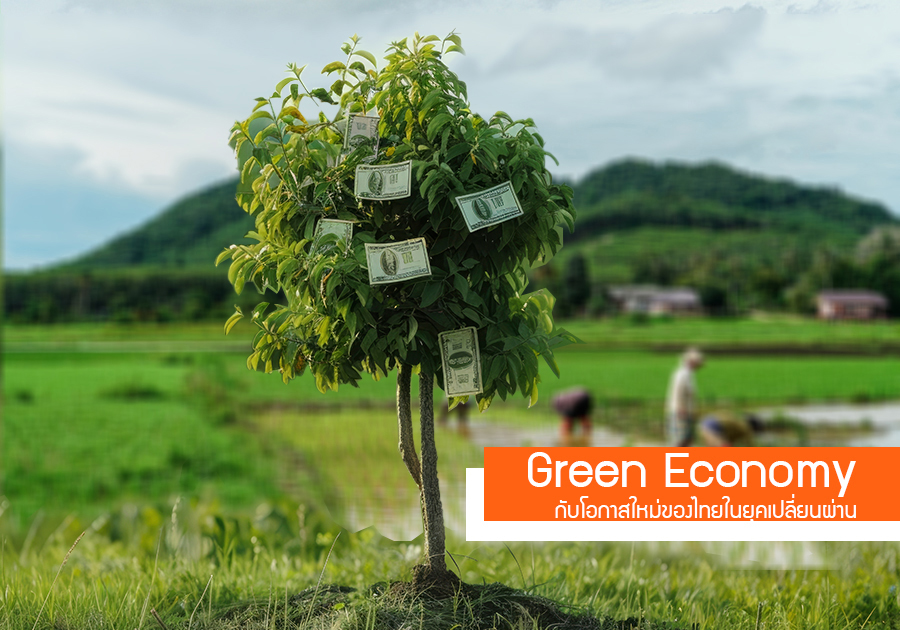References
Ditto (Thailand) Public Company Limited



Amid the environmental crisis and climate change, many countries around the world have turned to promoting a “Green Economy,” which emphasizes economic development alongside environmental conservation. Thailand, too, has begun to show significant movement in this direction.
Many private organizations in Thailand have started investing in clean energy businesses, such as solar cells, electric vehicles, and comprehensive recycling systems. At the same time, the government has also introduced policies to promote the BCG Economy (Bio-Circular-Green Economy), aiming to utilize resources wisely and create environmentally friendly innovations.
One interesting example is the organic farming project in the Northeastern region, which helps increase villagers’ income while restoring soil health and reducing the use of chemicals. In addition, major corporations such as PTT and Bangchak have invested in alternative energy businesses, enhancing Thailand’s potential to become a leader in the green economy within the ASEAN region.
Reasons Why Thailand Must Transition to a Green Economy
Thailand faces air pollution issues (PM2.5) and water pollution in many areas.
The agricultural sector is vulnerable to global warming, such as droughts and floods.
Pressure from international commitments, such as COP28 and being part of the SDGs.
Key Projects and Policies in Thailand
BCG Economy Model
The Thai government is promoting the BCG model, which consists of :
Bio Economy: Bio-based economy, such as the use of medicinal plants in industries.
Circular Economy: Circular economy, such as recycling and designing biodegradable products.
Green Economy: Green economy, such as clean energy and organic farming.
Green Finance
The Bank of Thailand has started promoting green loans for renewable energy businesses and electric vehicles.
The Stock Exchange of Thailand supports green bonds for energy conservation projects.
Private Sector Investment
PTT is investing in battery businesses and EV charging stations.
Bangchak is developing biofuels and solar energy.
Real estate companies are starting to design Smart & Green buildings.
Examples of Community-Level Success
The “Baan Rai Plai Na” project in Surin Province, which transformed degraded land into a model organic farm.
A community enterprise group in Chiang Mai that processes waste to generate income through waste sorting and the production of biofertilizers.
Future Trends
The rise of electric vehicles (EVs) and clean energy will accelerate the green economy.
Thailand has the potential to become a hub for Green Logistics and Green Supply Chains in ASEAN.
A new generation of Thai consumers is increasingly prioritizing environmentally friendly products and services.
References
Ditto (Thailand) Public Company Limited